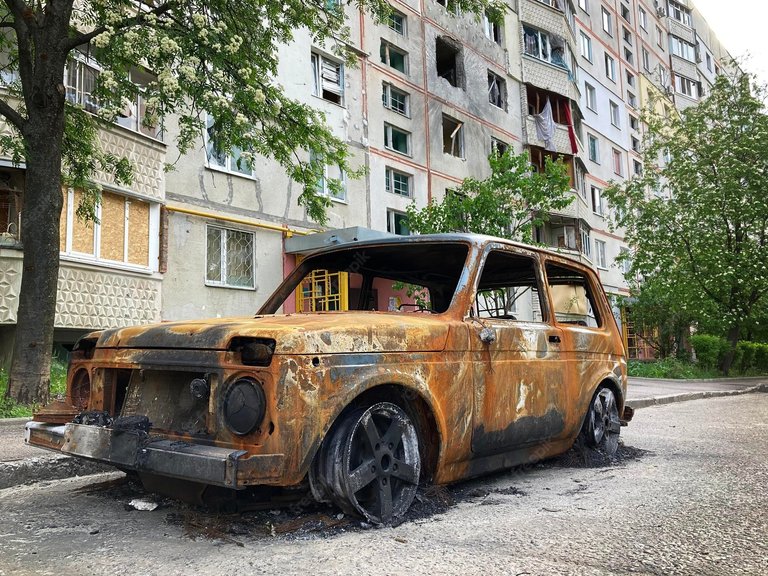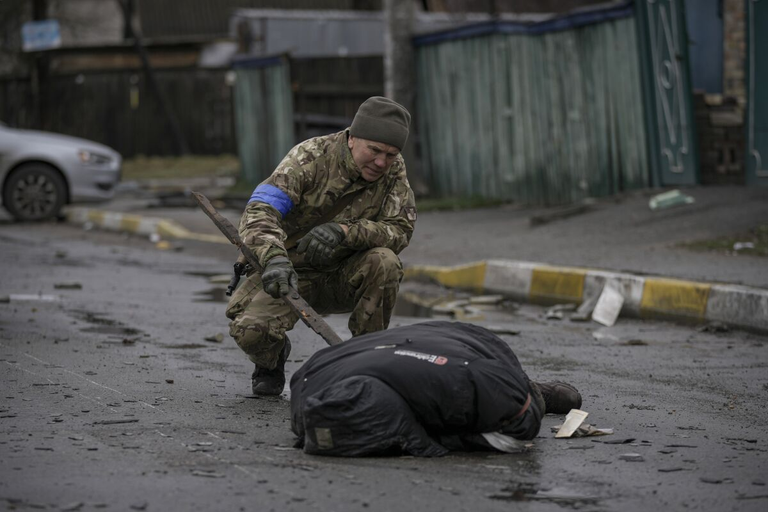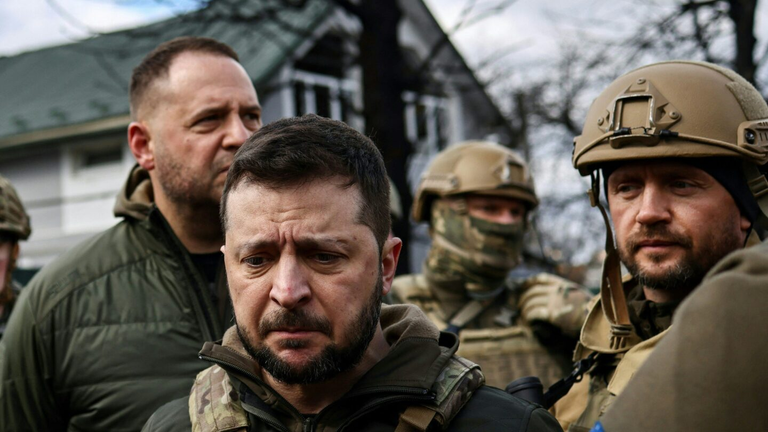Prosecution of Russian War Crimes: What Can Be Done?

Image Source: FreeImages
The prosecution of war crimes is an important part of international justice. War crimes are violations of international law, and those responsible for them must be held accountable. Russia and Ukraine have both been accused of committing war crimes in recent years, but what can be done to ensure that those responsible are held accountable? In this blog article, we will examine the legal definition of war crimes, the history of war crimes in Russia and Ukraine, the role of the International Criminal Court and the United Nations in prosecuting war crimes, the challenges in prosecuting war crimes in Russia and Ukraine, efforts to prosecute Russian war crimes, and the role of the media.
The Legal Definition of War Crimes
The legal definition of war crimes is a violation of international humanitarian law. These laws are designed to protect civilians and other non-combatants during times of war. War crimes include but are not limited to murder, torture, sexual violence, pillage, the use of prohibited weapons, and the recruitment of child soldiers. War crimes can be committed by both state and non-state actors, and they can be prosecuted in international and domestic courts.
In 1998, the Rome Statute was adopted by the United Nations, which established the International Criminal Court (ICC). The ICC has the power to prosecute individuals for war crimes when national courts are unable or unwilling to do so. The ICC has jurisdiction over 124 states and can prosecute cases that involve grave breaches of the Geneva Conventions, crimes against humanity, genocide, and other war crimes.
The History of War Crimes in Russia and Ukraine
Russia and Ukraine have both been accused of committing war crimes in recent years. In 2014, Russia annexed Crimea, a part of Ukraine, and began a military conflict in the region. In response, the United Nations Human Rights Council adopted a resolution condemning the actions of Russia and calling for an international investigation into the human rights violations committed by both sides. In 2015, the International Criminal Court opened a preliminary examination into the situation in Ukraine and determined that there was a reasonable basis to believe that war crimes and crimes against humanity had been committed.
In 2018, the United Nations Human Rights Monitoring Mission in Ukraine reported that there was evidence of war crimes being committed by both sides in the conflict. The report concluded that Russian forces had committed war crimes, including torture, murder, and unlawful detention. The report also found that Ukrainian forces had committed war crimes, including torture, murder, and the use of prohibited weapons.

The International Criminal Court & Russia's Responsibility
The International Criminal Court (ICC) has the power to prosecute individuals for war crimes when national courts are unable or unwilling to do so. The ICC has jurisdiction over 124 states and can prosecute cases that involve grave breaches of the Geneva Conventions, crimes against humanity, genocide, and other war crimes.
Russia is not a member of the ICC, and therefore the ICC does not have jurisdiction to prosecute any war crimes committed in Russia. However, the ICC can still prosecute individuals who are responsible for committing war crimes in other countries. This means that Russian citizens or officials who are accused of committing war crimes in Ukraine can be brought before the ICC.
The Role of the United Nations in Prosecution of War Crimes
The United Nations has been instrumental in the prosecution of war crimes. The United Nations Security Council has the power to refer cases to the International Criminal Court for prosecution. The Security Council has referred several cases to the ICC, including the situation in Darfur, Sudan, and the conflict in Libya.
The United Nations also has its own Human Rights Council, which monitors and investigates human rights violations around the world. The Human Rights Council has conducted investigations into the conflict in Ukraine and concluded that war crimes had been committed by both sides. In response, the Council has called for an international investigation into the situation and for those responsible to be held accountable.
The United Nations has also been instrumental in the prosecution of war crimes in other countries. For example, the International Criminal Tribunal for the Former Yugoslavia was established by the United Nations in 1993 in order to prosecute those responsible for war crimes in the Bosnian War. This tribunal was successful in prosecuting many individuals and bringing them to justice.
Challenges in Prosecuting War Crimes in Russia and Ukraine
Prosecuting war crimes in Russia and Ukraine can be difficult. The ICC does not have jurisdiction over Russia, so individuals accused of committing war crimes in Russia cannot be brought before the ICC. Additionally, Russia is not a signatory to the Rome Statute, which means that the ICC does not have the authority to investigate or prosecute any war crimes committed in Russia.
Russia has also refused to cooperate with international investigations into the conflict in Ukraine. This has made it difficult for the United Nations and other international organizations to investigate and prosecute war crimes. Additionally, the lack of access to evidence has made it difficult to build a case against those accused of committing war crimes.

Efforts to Prosecute Russian War Crimes
Despite the challenges, there have been some efforts to prosecute Russian war crimes. The European Court of Human Rights has been instrumental in prosecuting war crimes in Russia. The Court has issued several judgments against Russia for its actions in Ukraine, including a ruling that Russia was responsible for the deaths of three Ukrainian servicemen in 2014.
The International Criminal Court has also opened a preliminary examination into the situation in Ukraine and determined that there was a reasonable basis to believe that war crimes and crimes against humanity had been committed. The Court has yet to issue any indictments, however, as Russia has refused to cooperate with the Court's investigation.
Domestic courts in Ukraine have also taken action against individuals accused of committing war crimes. In 2017, Ukrainian prosecutors charged four Russian servicemen with torture, murder, and terrorism. Although the defendants were not present in court, the judge issued a guilty verdict and sentenced the men to life in prison.
The Role of the Media
The media has been essential in raising awareness of war crimes and in holding those responsible to account. In particular, the media has been instrumental in documenting the human rights violations committed by both sides in the conflict in Ukraine. Through videos and photographs, the media has provided evidence of war crimes, which has been used to prosecute those responsible.
Additionally, the media has played an important role in raising awareness of war crimes. Through articles and interviews, the media has been able to highlight the issues and to bring attention to those affected by war crimes. The media has also been able to put pressure on governments to take action and ensure that those responsible are held accountable.
Conclusion
Prosecution of war crimes is an important part of international justice. Russia and Ukraine have both been accused of committing war crimes in recent years, but prosecuting those responsible can be difficult. The International Criminal Court does not have jurisdiction over Russia, so individuals accused of committing war crimes in Russia cannot be brought before the ICC. Additionally, Russia has refused to cooperate with international investigations into the conflict in Ukraine.
Despite these challenges, there have been some efforts to prosecute Russian war crimes. The European Court of Human Rights has issued several judgments against Russia, and the International Criminal Court has opened a preliminary examination into the situation in Ukraine. Domestic courts in Ukraine have also taken action against individuals accused of committing war crimes.
The media has also been essential in raising awareness of war crimes and in holding those responsible to account. Through videos and photographs, the media has provided evidence of war crimes, which has been used to prosecute those responsible. Additionally, the media has been able to raise awareness of war crimes and to put pressure on governments to take action.
Ultimately, prosecuting Russian war crimes is a difficult but important task. It is essential that those responsible for war crimes are held accountable, and that justice is served for the victims. If you would like to learn more about war crimes and how you can help, please visit [website] for more information.